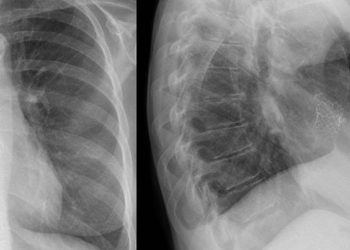Zodasiran associated with reduced triglyceride levels among adults with mixed hyperlipidemia
1. In this randomized controlled trial, adults with mixed hyperlipidemia who received zodasiran had dose-dependent decreases in triglyceride levels compared to those who received placebo.
2. Patients who received the highest dose of zodasiran had transiently increased glycated hemoglobin levels, returning to baseline with treatment.
Evidence Rating Level: 1 (Excellent)
Study Rundown: Mixed hyperlipidemia is characterized by elevated low-density and triglyceride-rich lipoproteins such as chylomicrons, very-low-density lipoproteins, and remnants. While statins are a mainstay of treatment for lowering low-density lipoprotein (LDL) cholesterol, remnant cholesterol levels can remain elevated and continue to pose their standalone risk for atherosclerotic cardiovascular disease. Angiopoietin-like 3 (ANGPTL3) is a liver-derived circulating factor that inhibits lipoprotein lipase and endothelial lipase; loss-of-function variants are associated with lower levels of most plasma lipoproteins, including LDL and triglyceride-rich lipoproteins. Zodasiron (ARO-ANG3) is a small interfering RNA molecule that triggers the degradation of ANGPTL3 mRNA, thus inhibiting the synthesis and secretion of the downstream protein product. This phase 2b trial, ARCHES-2, was designed to evaluate the safety and efficacy of different doses of zodasiran in patients with mixed hyperlipidemia. It was found that patients who received zodasiran had significantly greater reductions in triglyceride, remnant cholesterol, LDL cholesterol, and non-HDL cholesterol levels compared to those who received a placebo. This study was limited by a small sample size, a homogenous patient population, and a relatively short follow-up duration. Nonetheless, these results suggested that patients with mixed hyperlipidemia who received zodasiran had significant decreases in atherogenic lipoprotein levels.
Click here to read the study in NEJM
In-Depth [randomized controlled trial]: In this double-blind, dose-ranging phase 2b trial, 204 adult patients with mixed hyperlipidemia (fasting triglyceride level of 150 to 499 mg per deciliter and either an LDL cholesterol level of ≥70 mg per deciliter or a non-HDL-cholesterol-level-of≥100 mg per deciliter) were randomly assigned in a 1:1:1:1 ratio to receive either one of three doses of zodasiran (50, 100, or 200 mg) or placebo. The treatment was administered via subcutaneous injections on day one and week 12. The primary endpoint was the percent change in triglyceride level at week 24, and follow-up continued through week 36. Patient demographics and clinical characteristics were generally similar between groups except ANGPTL3 levels, which appeared to be higher among patients assigned to the zodasiran 200-mg group. At week 24, the difference in change from baseline triglyceride levels as compared with placebo was -51 percentage points (95% confidence interval [CI], -62 to -41) with 50 mg, -57 percentage points (95% CI, -67 to -46) with 100 mg, and -63 percentage points (95% CI, -74 to -53) with 200 mg (p<0.001 for all comparisons). These figures decreased slightly by 36 weeks to -34 percentage points, -38 percentage points, and -51 percentage points, respectively. Reductions versus placebo were also observed in mean ANGPLT3 levels (-45 percentage points, -57 percentage points, and -64 percentage points, respectively) as well as remnant cholesterol levels (-73 percentage points, -76 percentage points, and -82 percentage points, respectively). Parallel decreases were also observed in non-HDL cholesterol, LDL cholesterol, and apolipoprotein B. Adverse events were generally balanced between the zodasiran and placebo groups, and all serious adverse events in the zodasiran groups resolved. In summary, zodasiran use in patients with mixed hyperlipidemia was associated with significant, persistent decreases in triglycerides and atherogenic lipoproteins.
Image: PD
©2024 2 Minute Medicine, Inc. All rights reserved. No works may be reproduced without expressed written consent from 2 Minute Medicine, Inc. Inquire about licensing here. No article should be construed as medical advice and is not intended as such by the authors or by 2 Minute Medicine, Inc.





![Macitentan better than placebo for preventing progression of pulmonary arterial hypertension [SERAPHIN Trial]](https://www.2minutemedicine.com/wp-content/uploads/2013/08/ca68dc0329bef0b42ccae7b6656a0f_gallery-75x75.jpg)

